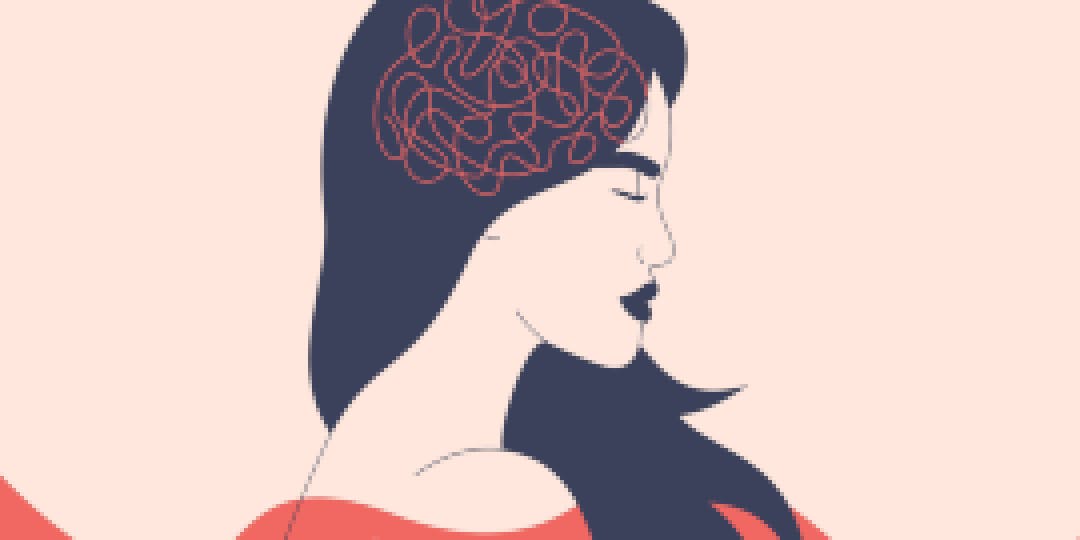[ad_1]

In excess of the study course of Vanessa Marie Bustamante’s 13-calendar year occupation in academia, just one point that is never ever waivered is the part of her id firmly rooted in becoming an “average homegirl.” It’s one thing that the California-primarily based educator at MiraCosta School, who also goes by the moniker Homegirl Doctora, states typically chafes from additional rigid, conventional campus tradition. And it is left some others like Bustamante—Latinas in larger schooling who dress otherwise, blend English with Spanish, voice their opinions loudly—feeling alienated.
Bustamante and her near circle of pals are out to adjust that. She’s part of a team identified as Chola Vida, which celebrates the Latina subculture she suggests was when related with gangs but now signifies potent females who are leaders in their communities. They are partnering with the University of Colorado at Boulder to host the second La Chola Convention in the slide.
The topic “High Visibility Hynas: Cholas in Pop Culture” will investigate how the concept of the chola is evolving as it gets to be a lot more mainstream, Bustamante says, and produce a house in which attendees can shed the masks they don in better ed and be by themselves.
We caught up with Bustamante to chat about the meeting, chola visibility in academia and how individuals two issues tie in with what significant variety, equity and inclusion initiatives appear like in increased education. The subsequent job interview has been edited for duration and clarity.

EdSurge: How would you outline what a chola is?
Vanessa Marie Bustamante: I feel everyone will have a different definition, but for us as a collective, we truly target on la chola being anyone who places in get the job done for her community. I’m nevertheless placing in function for my community, even obtaining a doctorate title or whatever papers academia desires to give me. It is really being in a position to go back into my barrio communities and lifting and bringing persons up and expressing, “You know what? We can support each and every other out. This is how I obtained you.” [That’s] the true essence of who la chola is. She’s a chingona, she’s an individual who’s a trailblazer, who consistently places in get the job done for the community.
The 1st La Chola Convention, held very last April, targeted on the scholarly function and analyze of cholas. How did the thought for a meeting about this group arise?
In this group, a whole lot of us have been pursuing education and learning in diverse realms. [We] were being just getting a lot of problems navigating not just the method of trying to get sources on campus or making an attempt to navigate selected admissions processes and matters like that. It was also in the appears that we would get currently being on campus, dressing or performing our make-up like we do on campus. Just finding awkward stares, uncomfortable conversations with professors.
We would share these points with every single other. I might been in the group for eight several years currently and, 1 day we were just type of all jointly speaking right after an artwork present, and a lot of us started off stating, “Wouldn’t it be wonderful if we could uncover others like us throughout the nation? Men and women who are navigating larger instruction, continue to remaining accurate to who they are.”
I finished up achieving out to the greater ed institution that I was doing the job at and begun trying to get points hosted at the campus. And I was fulfilled with so significantly pushback. They did not like the strategy of having something like this because of the criminal id that a whole lot of individuals slip-up cholas for obtaining.
In the end the meeting was hosted on Zoom owing to the pandemic. What ended up some of the matters discussed?
We had folks from all over the nation who recognized as cholas or who ended up undertaking scholarly do the job as it associated to cholas. We explored so numerous subjects: chola motherhood, cholas in academia, chola Ph.D.s. Sharing genuine difficulties of them navigating these establishments and, and getting out, you know, this doesn’t just occur here in LA wherever we were being at, proper?
It was occurring in all of these different states all throughout the state, these cholas not staying taken very seriously or people wanting them to reframe their operate or reframe their exploration proposals, to acclimate them to the establishments. And so it was really us wanting to split into these establishments and display that we are in this article. And we are making our own support units, even when the institutions are not generating them for us.
You do the job in scholar support at a faculty. How does cultural visibility tie in with pupil accomplishment?
If you walk on to a college campus and you really don’t see artwork that signifies your group or struggles that your community has confronted, you might be not going to feel as connected.
I assume faculty, they are definitely the people today that communicate up and are equipped to go items alongside. They convey panels or they carry groups. But I haven’t found any administrator, like huge-degree entities, shift a thing like this alongside nonetheless.
With a lot of campuses launching plans like Job Rebound or a changeover application [for formerly incarcerated people], we’re transferring in the ideal direction exactly where men and women are heading to come to feel additional integrated.
But also, the counselors that are assigned to those programs, do they have an understanding of all those dynamics? When a scholar will come in and talks about their barrio community, do they realize what that suggests? If they did have people today that genuinely shared in that encounter, there would be additional link to the college student.
How have persons responded to possibilities to improve visibility of chola students and challenges?
I truly feel like persons left the conference last year emotion that the get the job done that they are doing is critical and valid and shifting issues. I listened to the term “chingona” so considerably, like, “I sense like these types of a chingona now.” Some of the response you have been getting was that people had felt invisible on their campus.
Some men and women had been like, “I wanna invite like my tía to this subsequent year.” Or a spouse and children member, like a cousin, since they’ve felt invisible or they have been criminalized all their lives, and they truly feel like they are unable to get out of that. There is a harsh perception that’s generally surrounded barrio tradition in common.
Even from a better ed standpoint, it really is just variety of like, “Wow, what a great way to get persons to your campus.” People from your nearby group that could be likely to your university to do some kind of software, regardless of whether it really is a certificate system or a degree granting application or even a trade program.
What is your standpoint on how range, equity and inclusion function is likely in increased ed?
I think [La Chola conference host, the University of Colorado at Boulder] is shifting to aid and to actually have interaction their communities of colour, their very low-earnings communities, their impacted communities. Some people are truly putting the action driving their equity, variety and inclusion policy. I assume a ton of schools and universities aren’t there. They’re just however conversing about it and, you know, just conversing about how they’re heading to do all these good matters.
What effect do you hope your function has?
I consider a ton of us are hoping that the affect will be that far more individuals occupy areas [and] notice that these spaces are for them. For those at present in academia who are accomplishing analysis or doing work within some variety of educational establishment, ideally they also realize that they deliver a great deal to the desk, that they should really apply for that subsequent work, that they should really use for that research assistantship or what ever it is that they’re performing. It’s really additional so to ideally empower our local community to see their value, to see that they do provide valuable do the job to the table.
What else about this conference would make it special?
This convention was produced by folks who have that identity and have that expertise. We in no way transformed ourselves to acclimate to the academic area. We’ve held our identities and we made a little something from that although also carrying individuals trials and tribulations that we endured in the instructional location. So I imagine it is really very one of a kind in that sense. That’s why I am going to say our organizers ended up actually just like a few of homegirls who sat all around a hearth and came up with this convention.
When you say you have stored your identities, do you necessarily mean you have stayed real to the way you gown or speak? Or something else?
I believe la chola lives inside of, and so it is really becoming capable to carry your self in that way. To be in all those options and press back again, like, “Why are not able to I do this as my investigation topic? What in your plan states that I cannot?” It can be staying ready to converse up and, in a feeling, talk again.
It’s being ready to engage with pupils, in English and Spanish and getting like, “Hey, what is up?” when you happen to be not intended to discuss to learners like that. When you are meant to just be like, “Hello, how can I help you?”
It’s these sorts of factors, navigating that system when it really is telling you to be 1 way, but you stay correct to your language, like how you chat, the way you inspire learners.
[ad_2]
Supply hyperlink


